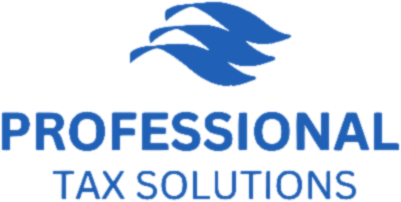Schedule E preparation with clear guidance
Professional Tax Solutions helps landlords in Grand Blanc, Traverse City, Flint, and nearby lake towns report rental income accurately and capture every eligible deduction. Whether it is a single long term rental or several units along US 31, we organize records, prepare Schedule E, and explain how the totals affect your Michigan return. If books need attention, our team can clean up bookkeeping services so income and expenses are categorized properly before we file.
Maximizing rental deductions— Mortgage interest, taxes, repairs, and depreciation
Common deductions include mortgage interest, property taxes, insurance, utilities, management fees, repairs, and travel tied to the property. We separate repairs from improvements, track depreciation schedules, and keep receipts organized. For owners with properties near Ascension Genesys Hospital, Downtown Flint, or Old Mission Peninsula, we provide checklists that make gathering documents simple.
Short term rentals, passive loss rules, and property sales
If you operate a short term rental, we review usage to determine treatment and occupancy taxes that may apply. We evaluate passive activity loss limits and phaseouts, then plan timing of expenses where it helps. When you sell a rental, we calculate basis, depreciation recapture, and capital gain, and we coordinate with tax planning before the sale so you understand outcomes in advance.
Rental Property Accounting
Clean records that make filing faster
Accurate tracking is the difference between a smooth return and a stressful one. We set up categories that match your properties, reconcile monthly, and prepare simple reports that tie to the return. For busy seasons, we can also review vendor statements and create a year end summary that feeds directly into tax preparation.
Do I need to file if my rental showed a loss this year?
Yes. File even if the property shows a loss. The loss may be limited by passive activity rules, but unused loss usually carries forward and can reduce future rental income or offset gain when you sell. Filing also keeps depreciation on track and documents basis changes from improvements. If you skipped a year, Professional Tax Solutions can help file the missing return and restore accurate carryforwards.
How does depreciation affect my ability to deduct expenses next season?
Depreciation spreads the cost of the building and certain improvements over time. It does not block normal deductions for interest, taxes, insurance, or repairs in future years. If passive loss limits cap your deduction this year, the unused portion carries forward. Depreciation also affects gain when you sell because the IRS treats prior depreciation as taken, whether you claimed it or not. We track schedules so next season’s return reflects the right amounts and you are prepared for eventual recapture.
Can I deduct renovations immediately or only capitalize them?
Routine repairs are usually deductible in the year you pay them. Renovations that improve, restore, or adapt the property must be capitalized and depreciated. Examples include a full kitchen remodel or new roof. Painting or fixing a broken window is typically a repair. Documentation and invoices matter, so keep details that show what was done and why. We can review gray areas and set a simple policy so similar costs are treated the same way every time.
What records should I keep for travel and supplies?
Keep a mileage log with date, destination, purpose, and miles when you drive to the property or hardware store. Save receipts for supplies, tools, lock changes, cleaning, and advertising. Digital copies are fine if they are legible. For larger purchases, keep invoices, payment proof, and notes about whether the item was a repair or an improvement. Professional Tax Solutions provides a checklist and folders so records are easy to find at tax time.
How do city filings in places like Detroit interact with my Michigan and federal returns?
Some Michigan cities, including Detroit, tax rental income sourced to the city. Residents file on all income, while nonresidents report income earned in the city. You still file federal and Michigan returns as usual, and you may claim credits or adjustments so income is not taxed twice. City rules vary, so we confirm whether a local return is required for your address and the property location, then line everything up so federal, state, and city filings match.


